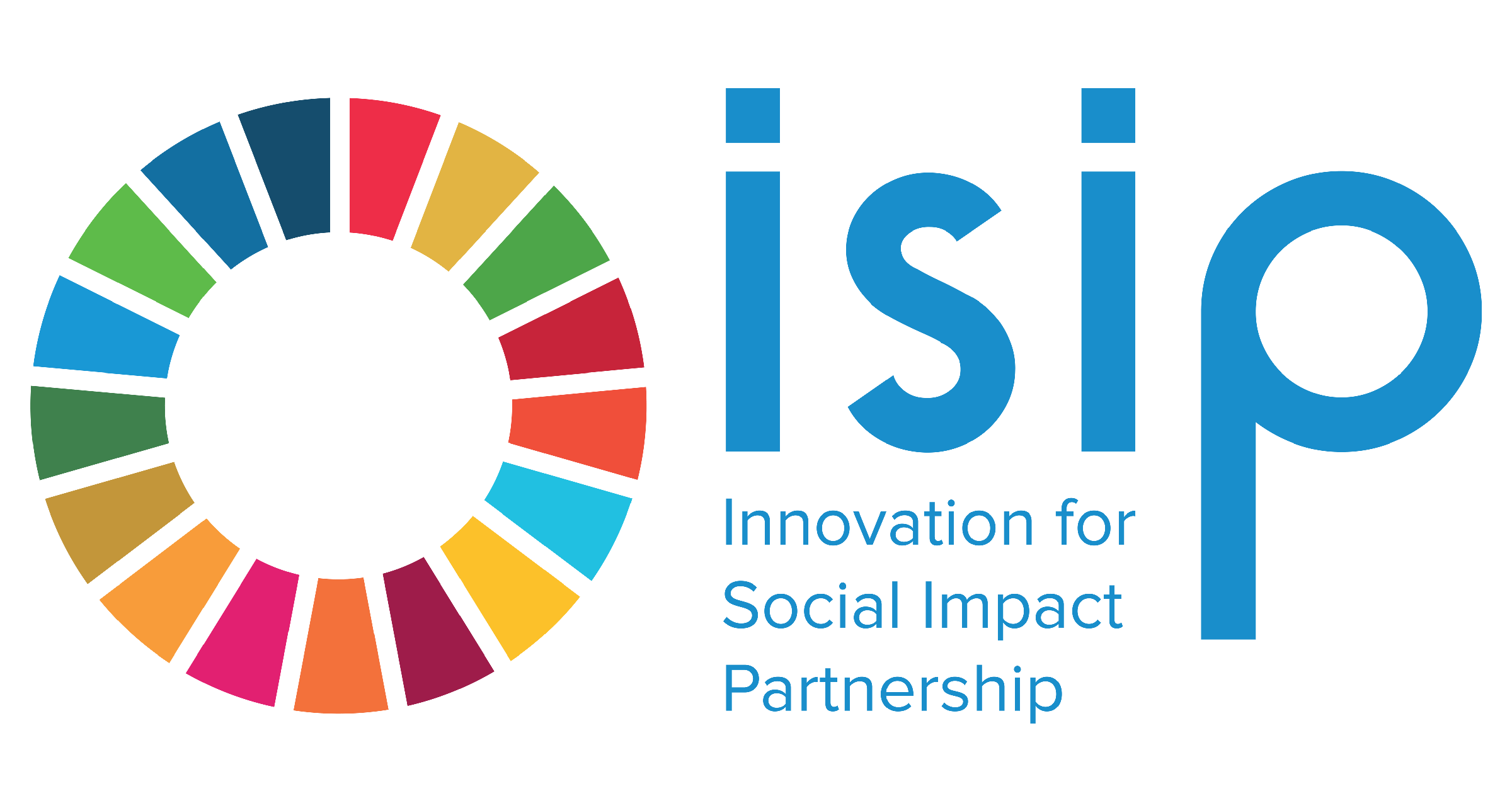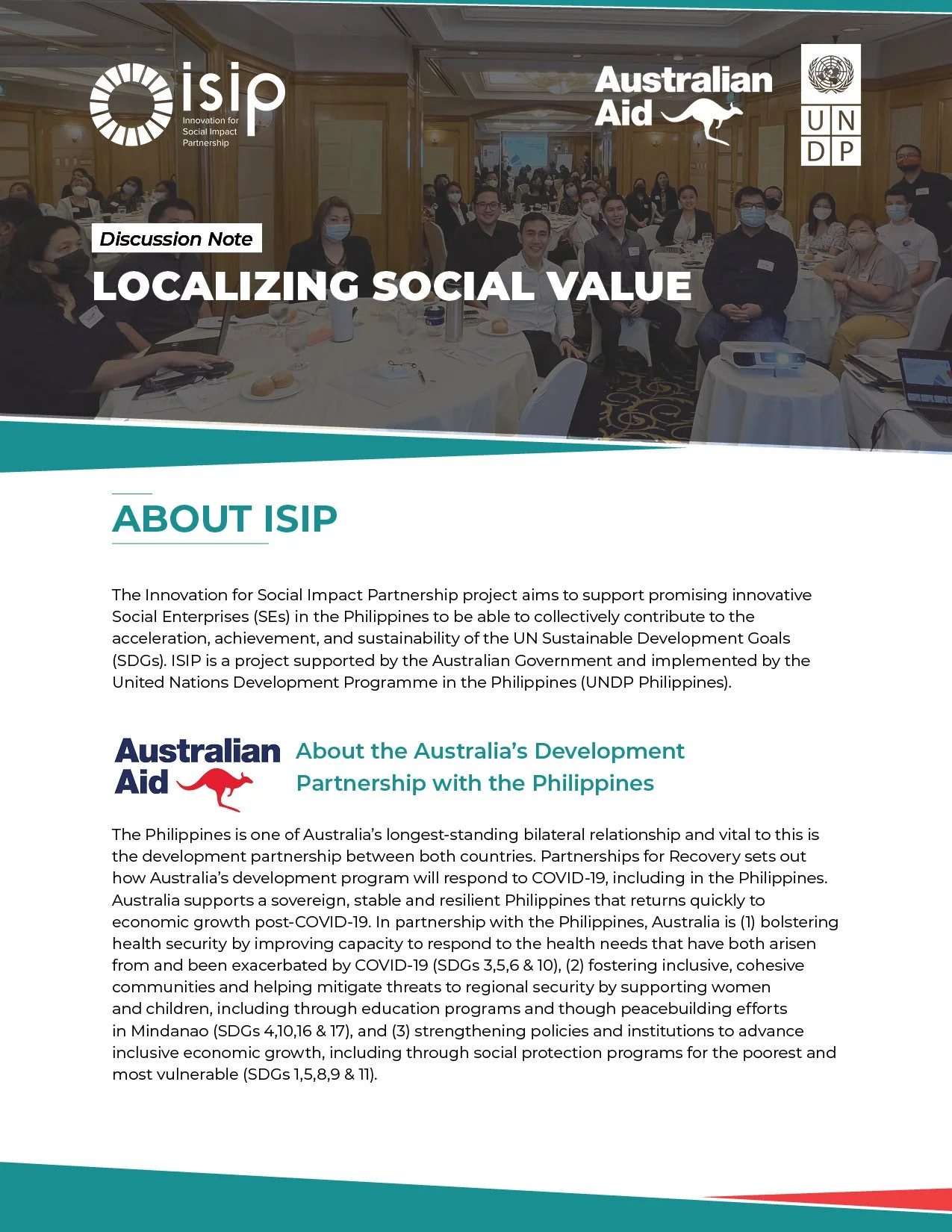Discussion Note
Social Enterprise Policy Prototyping for BARMM
Based on a user journey mapping exercise in Cotabato City with local social enterprise ecosystem stakeholders, this discussion note aims to identify gaps and ways forward for enhancing social enterprise support in the Bangsamoro Autonomous Region of Muslim Mindanao (BARMM) including more targeted and specific support to increase the value and number of SEs in the region; and the opportunity for convergence and long-term planning among relevant institutions. After identifying existing initiatives that align to four key policy provisions in the Bangsamoro Social Enterprise Bill, the user journey maps were projected into experience blueprints that allow stakeholders to explore practical ways for bringing these provisions to life even while waiting for the bill to become law. These provisions include: (1) the SE capacity-building and sustainability program; (2) the SE research and development system; (3) the SE marketing infrastructure development; and (4) preferential procurement rights for SEs.
The mapping and blueprinting of these policy agendas uncovered specific opportunities for improvement and collaboration among SE ecosystem players.
Discussion Note
Localizing Social Value
The concept of social value is defined as “the additional benefit to society of procuring a good or service, over and above the direct benefit and value of the good or service to the procuring entity.” Also known as preferential procurement rights, this discussion note explores the possibility of institutionalizing this policy reform at the local government level. Through roundtable discussions and key informant interviews, this note documents challenges and opportunities raised by ecosystem stakeholders such as a universally accepted definition of social enterprises, compliance costs to formalizing a business, capacity-building, metrics, and mindset shifts needed to support and scale social value procurement.
Executive Summary
Worldwide, there is a growing recognition of the importance and potential of social entrepreneurship as a key factor in achieving the Sustainable Development Goals (SDGs). In the Philippines, there is an estimated count of 164,473 social enterprises (SE) present. However, numerous challenges prevent the Philippine social enterprise ecosystem from fully thriving.
Financing for Filipino Social Enterprises
In 2019, the Innovation for Social Impact Partnership (ISIP) conducted a series of roundtable discussions with key stakeholders in the Philippine social enterprise ecosystem to gain a deeper understanding of the ecosystem’s financing landscape. Check out and download these issue papers below.
JUNE 2021
Issue Paper: Growth-stage Social Enterprises in the Philippines
Growth-stage social enterprises identified critical success factors for social enterprises in the Philippines, such as mentorship and peer-to-peer learning; capacity and willingness to pivot; support platforms and allied services; value chain partnerships; among others.
JUNE 2021
Issue Paper: Financing for Filipino
Social Enterprises (ESOs)
According to ESOs, the success factors for financing Filipino social enterprises can be summarized into three heuristics: (1) Think Big, (2) Be F.A.S.T., and (3) Act Social. ESOs also identified tension points between ESO and Funder; ESO and SEs; and ESO and Capital.
JUNE 2021
Issue Paper: Financing for Filipino
Social Enterprises (Investors)
Investors, on the other hand, defined the characteristics of an ‘investment-ready’ SE, such as having strong, resilient founding teams with the capability to be flexible, grow, and pivot; demonstrating traction; and having a realistic exit strategy for investor capital.
Financing Landscape of Social Enterprises in the Philippines (Banks)
JUNE 2021
This knowledge product seeks to validate assumptions about social enterprise financing and inform on-going and future ISIP approaches that aim to bridge the financing gap of Filipino social enterprises.
Technopreneurship Governance Blueprint
JUNE 2021
The Technopreneurship Governance Plan is a guiding framework for the academe. The blueprint aims to promote a minimum standard for HEI-based technopreneurial activities in the Philippines and provides a checklist of basic principles, human resources, operational costs, physical and digital infrastructure considerations for rolling out the course in institutions.
The Impacts of COVID-19 Pandemic and Community Quarantine on Social Enterprises in the Philippines
JUNE 2021
The study shows that social enterprises, similar to MSMEs, have been negatively affected by the COVID-19 pandemic and community quarantine. Several SEs note experiencing disruptions in the supply chain and distribution channels.
Impact-Driven Innovation and Entrepreneurship Ecosystem Review
JUNE 2022
This review, available via full report and a shorter discussion note, seeks to outline the innovation and entrepreneurship ecosystem in the Philippines with a particular focus on Impact-Driven Enterprises (IDEs), specifically social enterprises, impact startups, and grassroots innovations. This involves analyzing the sector’s organization and enablers, the policies that affect IDEs; the impact investing space in the country; and its economic and fiscal implications, among others.











